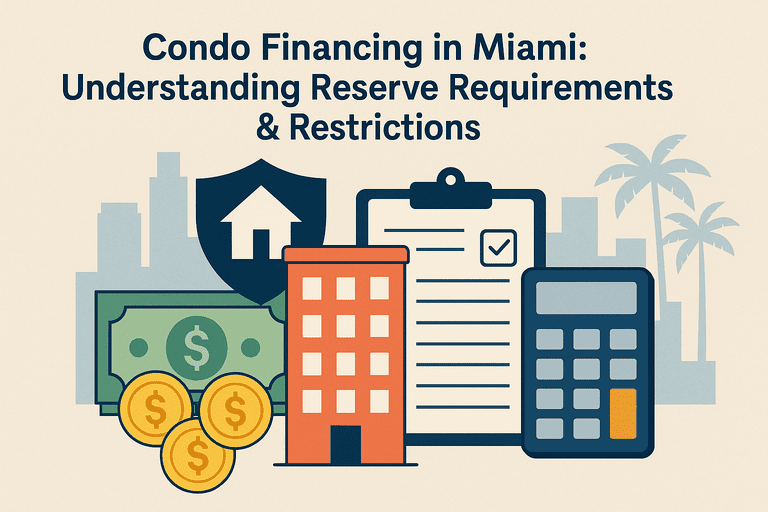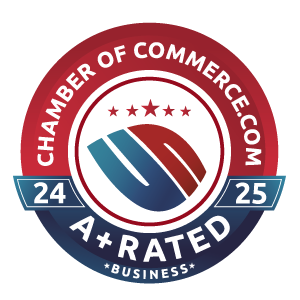Condominiums are a major part of Miami’s housing market, offering everything from affordable starter units to multimillion-dollar luxury towers on the beach. But while condos are attractive to many buyers, financing them is often more complicated than financing single-family homes.
In 2025, new rules and stricter requirements are reshaping how lenders approve condo mortgages. Understanding these changes — especially reserve requirements and building restrictions — is essential for buyers. With the guidance of a Miami mortgage broker, you can avoid costly delays and secure financing with confidence.
Why Condo Financing Is More Complicated
Lenders see condos as higher risk compared to single-family homes because:
-
You don’t just own the unit — you share responsibility for the building.
-
If the condo association lacks reserves or financial health, lenders may deny loans.
-
Past disasters (like the Surfside collapse in 2021) have made underwriting stricter across Florida.
Reserve Requirements Explained
As of 2025, Fannie Mae and Freddie Mac require condo associations to maintain strong financial reserves to qualify for financing.
What this means for buyers:
-
Buildings must set aside at least 10% of their annual budget for reserves.
-
If reserves are inadequate, the building may be deemed “non-warrantable.”
-
Non-warrantable condos require alternative financing, usually with higher rates.
A mortgage broker helps identify whether the building you’re interested in meets these standards.
Other Condo Financing Restrictions
-
Owner-Occupancy Ratios – Many lenders require a certain percentage of units to be owner-occupied vs. rented.
-
Litigation Issues – Active lawsuits against the condo association may disqualify the building.
-
Special Assessments – Ongoing or upcoming assessments can signal financial instability.
-
Insurance Coverage – Buildings must carry proper hazard, flood, and liability insurance.
-
Delinquency Rates – If too many owners are behind on dues, financing can be restricted.
Loan Options for Miami Condo Buyers
-
Conventional Loans: Best for warrantable condos that meet Fannie/Freddie rules.
-
FHA Loans: Only available in FHA-approved condo developments.
-
VA Loans: For veterans buying in VA-approved buildings.
-
Portfolio Loans: Private lenders that finance non-warrantable condos.
-
Jumbo Loans: For luxury units exceeding conventional loan limits.
The Mortgage Broker Advantage in Condo Financing
Condo financing requires a level of expertise most banks don’t provide. A Miami mortgage broker can:
-
Identify which condo buildings are lender-approved.
-
Work with multiple lenders to find financing for non-warrantable condos.
-
Guide buyers through documentation required by the condo association.
-
Secure competitive rates despite stricter guidelines.
Tips for Condo Buyers in Miami
-
Check Building Approval Early: Ask your broker if the condo is warrantable.
-
Budget for HOA Fees: Lenders include monthly dues in your DTI ratio.
-
Review Reserves: Healthy reserves mean smoother financing.
-
Work with Experts: Always team up with a broker who knows the Miami condo landscape.
Conclusion
Miami condos offer some of the most desirable living options in South Florida, but financing them requires careful planning. From reserve requirements to building restrictions, many factors can affect whether your loan gets approved.
A Miami mortgage broker ensures you know the rules upfront, connects you with lenders that finance condos, and helps you secure the best possible terms.
👉 Ready to buy a condo in Miami? Contact My Miami Mortgage Broker today for expert guidance and a free condo financing consultation.




